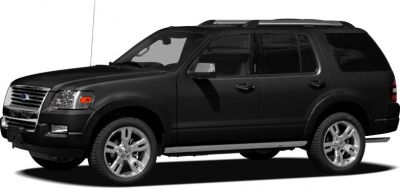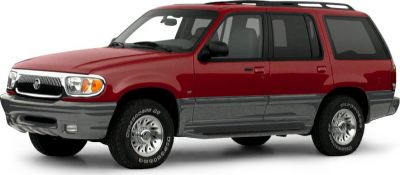 1999 Suzuki XL7 I Dimensions, Size & Specs
1999 Suzuki XL7 I Dimensions, Size & SpecsMeasurements of the 1999 Suzuki XL7 I, engineered for optimal performance and comfort
| Dimensions | |
|---|---|
| Length: | 4760 mm187.4 in15.6 ft |
| Width: | 1780 mm70.1 in5.8 ft |
| Height: | 1740 mm68.5 in5.7 ft |
| Trunk Capacity: | 900 liter31.8 cu ft |
| Trunk Capacity (Max): | 1687 liter59.6 cu ft |
| Weight Specifications | |
| Curb Weight: | 1735 kg3825 lbs |
| Maximal permitted Weight: | 2300 kg5071 lbs |
| Tire Specifications | |
| Rims Size: |
|
| Tire Size: |
|
The Suzuki XL7 I, produced from 1998 to 2006 and launched as a 1999 model year vehicle, is a mid-size SUV designed to balance urban utility with off-road capability. Measuring 4760 mm (187.4 inches) in length, 1780 mm (70.1 inches) in width, and 1740 mm (68.5 inches) in height, it offers a spacious yet maneuverable footprint suitable for families and adventure seekers alike. Weighing 1735 kg (3826 lbs) curb weight and with a maximum allowable weight of 2300 kg (5071 lbs), the SUV delivers a robust build that supports its versatile driving purposes. This is complemented by its tire specifications of 235/60 R16 mounted on 16-inch rims, providing solid traction and ride comfort. The XL7 I also stands out for its versatile cargo space, providing 900 liters (31.8 cubic feet) of luggage capacity with rear seats up, which expands significantly to 1687 liters (59.6 cubic feet) when the rear seats are folded down. This makes the SUV highly practical for transporting larger items or luggage during trips. With these dimensions and capacities, the Suzuki XL7 I remains a compelling choice in the mid-size SUV segment, combining practical interior space with solid on-road and off-road performance for users seeking a vehicle that adapts well to varying transport needs.
Discover the standout features that make the 1999 Suzuki XL7 I a leader in its class
Have a question? Please check our knowledgebase first.
The Suzuki XL7 I, produced from 1998 to 2006, measures 4760 mm (187.4 inches) in length, 1780 mm (70.1 inches) in width, and stands 1740 mm (68.5 inches) tall. These dimensions place it squarely in the mid-size SUV category, offering a comfortable balance of interior space and manageable footprint for urban and suburban driving.
The curb weight of the Suzuki XL7 I is 1735 kg (3825 lbs), indicating the vehicle's weight without occupants or cargo. Its maximum weight capacity, which includes passengers and cargo, is 2300 kg (5071 lbs). This robust capacity makes the XL7 suitable for carrying families and gear, supporting its role as a versatile SUV.
The Suzuki XL7 I provides a generous luggage capacity of 900 liters (31.8 cubic feet) when all rear seats are in place, ideal for everyday cargo needs. When the rear seats are folded down, the capacity expands dramatically to 1687 liters (59.5 cubic feet), accommodating larger loads such as sports equipment, camping gear, or bulkier shopping items.
A standard home garage typically measures about 2400 mm (94.5 inches) in width and 4800 mm (189 inches) in length. With the Suzuki XL7 I's length at 4760 mm (187.4 inches) and width of 1780 mm (70.1 inches), it fits comfortably in most standard garages, allowing enough clearance for opening doors and maneuvering.
The Suzuki XL7 I is equipped with 16-inch rims paired with tires sized at 235/60 R16. This combination supports a balanced ride quality, contributing to comfortable handling and road grip suitable for both on-road and moderate off-road driving conditions.
The Suzuki XL7 I was the first generation of this model, introducing a new size category for Suzuki's SUV lineup. Since there was no direct predecessor labeled as XL7, comparisons are often made against similar Suzuki SUVs like the Suzuki Grand Vitara. The XL7 I offers a longer and more spacious design compared to these earlier models, targeting families needing more interior room and cargo capacity.
The Suzuki XL7 I's dimensions—4760 mm (187.4 in) length, 1780 mm (70.1 in) width, and 1740 mm (68.5 in) height—are comparable to popular mid-size SUVs like the first-generation Honda CR-V and Toyota RAV4 of the same era. While it is generally longer, it maintains a slightly narrower width, making it easier to maneuver in urban settings while still providing competitive interior and cargo space.
The Suzuki XL7 I was designed to comfortably seat seven passengers across three rows, which was somewhat unique in its class at the time. The dimensions translate into adequate headroom and legroom, especially in the front and middle rows, while the third row is best suited for children or shorter trips. The overall interior layout focuses on versatility and practicality for family use.
Weighing 1735 kg (3825 lbs) with a solid mid-size frame, the Suzuki XL7 I offers a stable and confident driving experience. Its 16-inch rims and wider tire profile of 235/60 R16 help enhance road grip and ride comfort. The vehicle strikes a balance between robust SUV capability and manageable size, achieving good maneuverability without sacrificing stability on highways or rough terrain.
Absolutely. With a flexible seating capacity for seven, generous cargo volume ranging from 900 liters (31.8 cu ft) up to 1687 liters (59.5 cu ft) with folded seats, and a stable yet not oversized exterior footprint, the Suzuki XL7 I is tailored to meet the needs of families seeking versatility. Its practical size and thoughtful design make it an excellent choice for daily driving, family trips, and transporting bulky items with ease.
Discover similar sized cars.

| Production: | 2006-2010 |
|---|---|
| Model Year: | 2006 |
| Length: | 4813-4912 mm189.5-193.4 in |
| Width: | 2154 mm84.8 in |
| Height: | 1814-1849 mm71.4-72.8 in |

| Production: | 2002-2005 |
|---|---|
| Model Year: | 2002 |
| Length: | 4813 mm189.5 in |
| Width: | 1832 mm72.1 in |
| Height: | 1814-1830 mm71.4-72.0 in |

| Production: | 1996-2001 |
|---|---|
| Model Year: | 1997 |
| Length: | 4790-4990 mm188.6-196.5 in |
| Width: | 1831-1875 mm72.1-73.8 in |
| Height: | 1806-1830 mm71.1-72.0 in |

| Production: | 2022-present |
|---|---|
| Model Year: | 2023 |
| Length: | 4785 mm188.4 in |
| Width: | 1872 mm73.7 in |
| Height: | 1775 mm69.9 in |
